Don’t let Rishi ruin it! Let’s make political slogans great again
From the inspiring to the ridiculous, campaign phrases are a difficult art to master. Sean O’Grady puts some recent rallying cries to the test

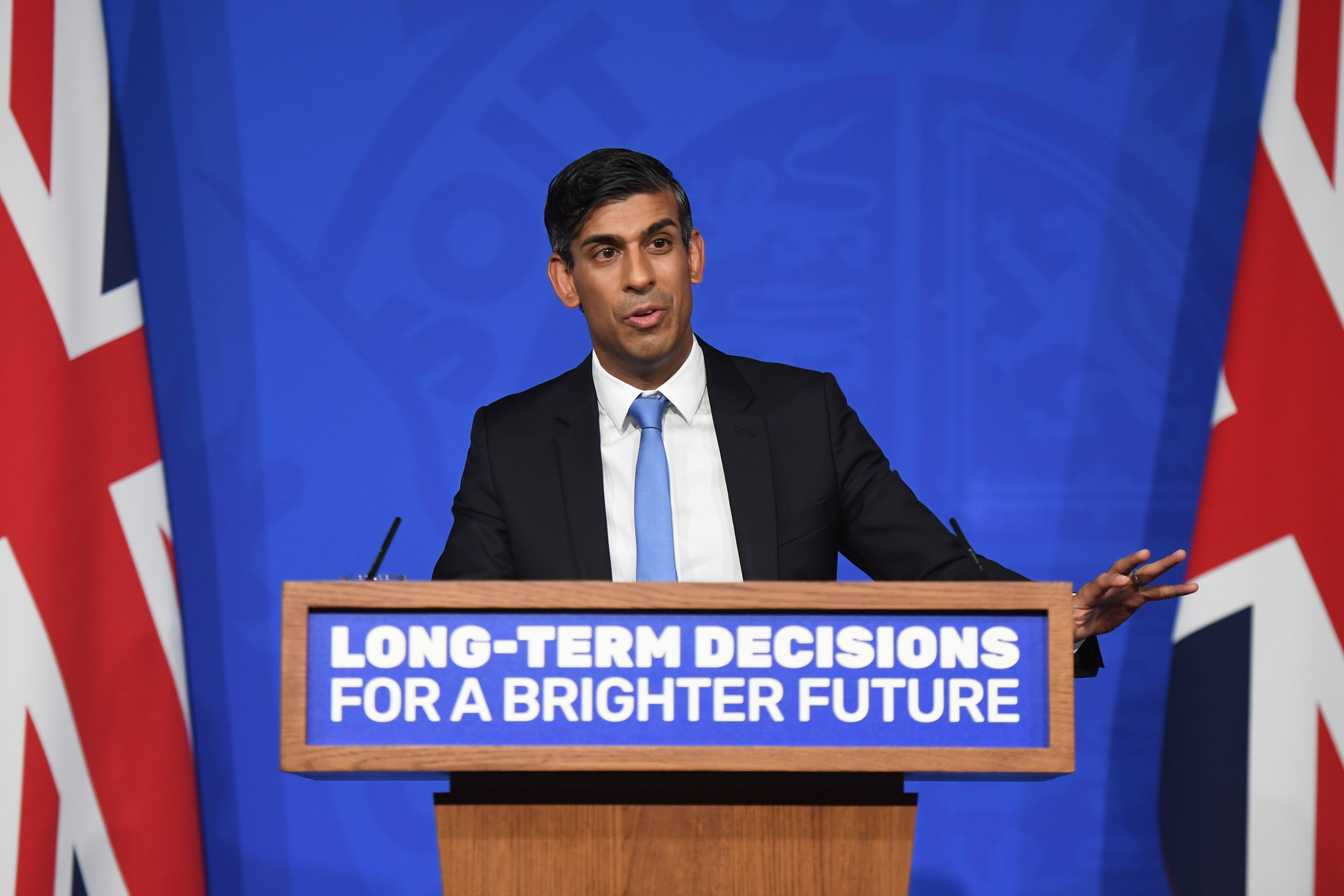
This hasn’t been a vintage year for many things, despite the Lionesses’ best efforts, and least of all for political sloganeering.
As we toddle towards probably the last party season before the general election, something seems to have gone badly wrong with the copywriting. Forced to announce his green policy retreat because of a leak, Rishi Sunak has also revealed his new party slogan: “Long-term decisions for a brighter future ”. Not only is this a mouthful, but it contains a hyphen and a rather long word and thus doesn’t fit on a podium very well. It looks as cumbersome as it sounds, and suggests a communications team that doesn’t know what it’s doing. It is a long way from recent classics such as “Get Brexit done” and “Build back better”. There is an art to phrasemaking, and it’s a difficult one to master.
Why is ‘Long-term decisions for a brighter future’ such a clunker?
It’s not exactly catchy, and quite difficult to get the tongue around, forked or otherwise. Conservative politicians will be obliged to repeat it in their platform speeches and media interviews, and it won’t be long before someone messes up.
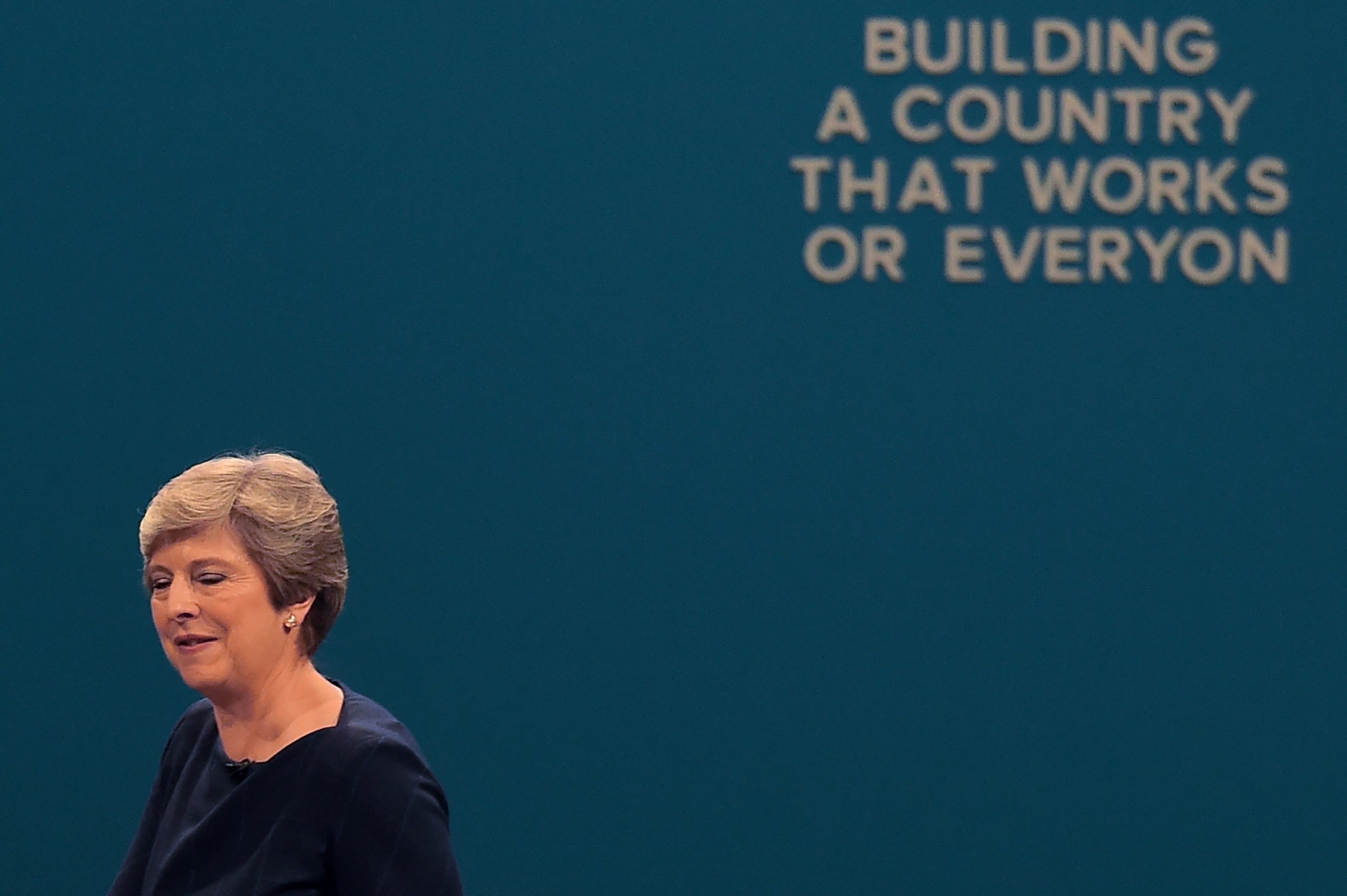
Aside from that, it embodies the exact opposite of what Sunak is busily doing elsewhere: taking distinctly short-term decisions for a Tory election campaign, and decisions that will lead to hotter, dirtier Britain. The cognitive dissonance is quite deafening.
Surely other parties can do better?
If anything, Labour is even worse. They might have relied on a trusted favourite, such as “For the many, not the few”, coined in Tony Blair’s time yet enthusiastically upcycled by the more egalitarian Jeremy Corbyn. It would suit Starmer perfectly well. But no, on the brink of their first election win in almost twenty years, Labour has decided to enthuse the nation with “Give Britain its future back”. This immediately conjures up the plaintive image of some kids asking an annoyed neighbour to return their ball, as if the Tories have been so irritated at having Britain’s future land in the back garden that they’ve spitefully stuck a fork in it and deflated it irreparably.
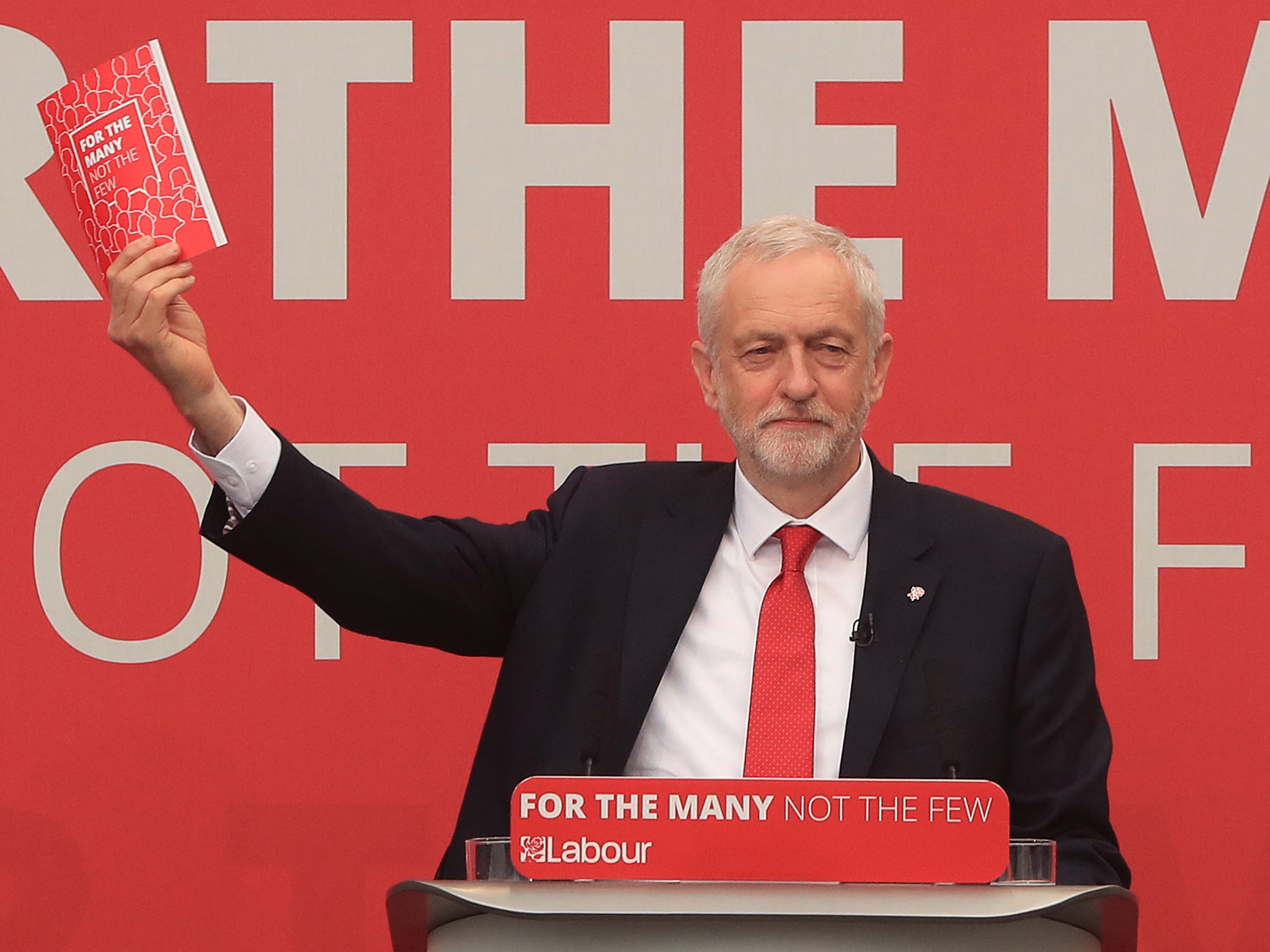
Often as not, soundbites and slogans spring spontaneously from focus groups (as did “Get Brexit done”), but it is difficult to imagine anyone normal coming out with “Give Britain its future back” in a freewheeling conversation. And if you think about it, nobody can take the “future” away from anyone or anything. It’s daft.
The Liberal Democrats are the default slogan winners, with “A fair deal” – unobjectionable, bland, fits every policy, instantly forgettable.
What makes a good slogan?
“Get Brexit done,” which sprang from a focus group meeting in a red-wall hotel long before the 2019 election, was short, immediately understood, and chimed with a weary national mood that crossed party lines. By the late autumn of 2019, with parliament in near-paralysis, four years of acrimony and with no resolution in sight, many voters of all persuasions had simply had enough and wanted an end to the arguments. Getting Brexit done (with an “oven-ready deal”) was an obviously false prospectus, but one that many were desperate to believe in.
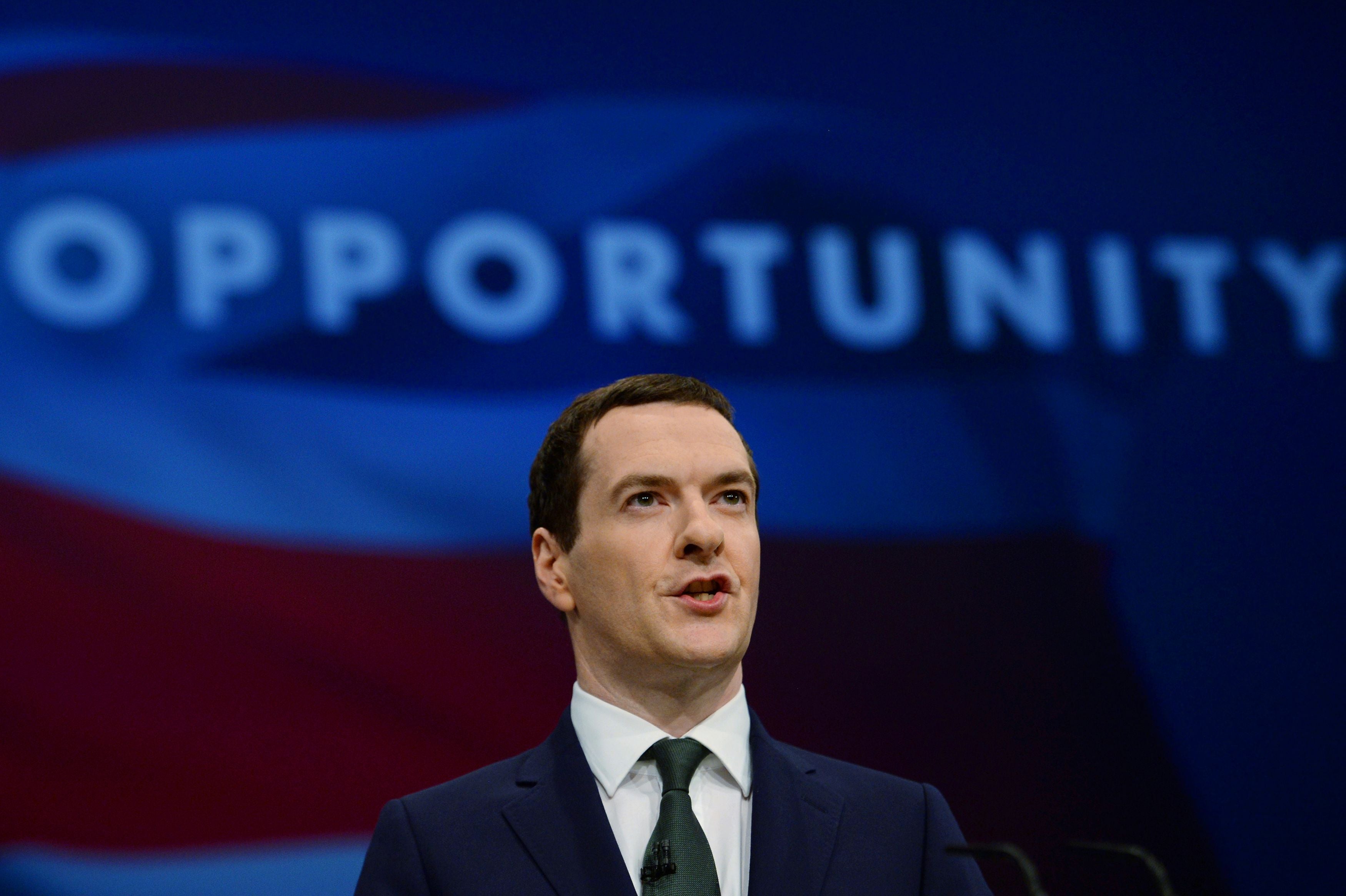
So, brevity works well – a lesson taken to heart by Johnson and his Svengali, Dominic Cummings, and thus we soon had “Build back better”, “Levelling up”, “Unleashing potential” and the like. That also goes for “New Labour, New Britain” and other Blairite phrases.
Can slogans be recycled?
One of the most effective Tory slogans was devised in the 1959 general election, at the height of Harold Macmillan’s age of affluence, after he’d casually reminded the electorate (in misquoted form) they had “never had it so good”. In the words of one authoritative study at the time: “In a gloriously warm summer, the posters proved well-suited to the country’s mood. One showed a family gathered around a table well laden with food and with a television set in the background; the other, a family washing its new small car. The slogan was short and pointed, ‘Life’s better with the Conservatives. Don’t let Labour ruin it’. These black-and-orange posters were outstandingly simple and direct. But their two-edged message could achieve its fullest impact only when a sense of wellbeing was really widespread.”
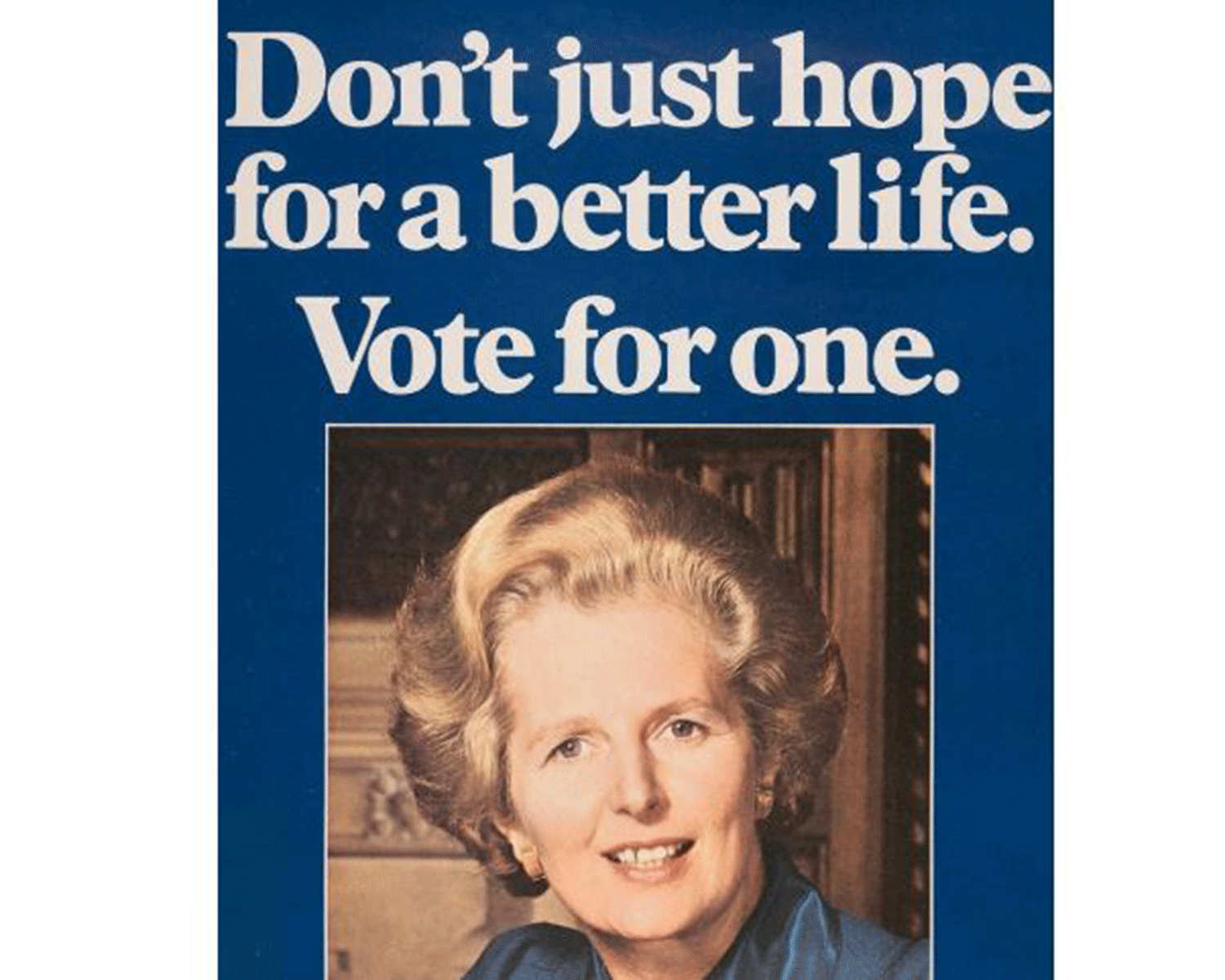
The slogan was revived and adjusted in 1987 as “British is great again, don’t let Labour wreck it”, which allowed for the fact that Thatcher’s revolution had made life better for some but there was plenty of poverty and unemployment around. John Major brought it back again in 1997 as “Britain is booming. Don’t let Labour ruin it”. By then, after the ERM debacle in 1992, the voters might have thought it an overstated claim. By the same token, with slow growth and a cost of living crisis, Sunak probably shouldn’t push his luck with a similar pitch.
What was the best party slogan?
Labour’s 1945 “Face the future” was inspirational. In more recent times, though, it’s another Tory one that actually made a difference, and provides a lesson in political communications. Slogans can’t lift a party out of the doldrums on their own, but in combination with the right mix of policies and personalities they can create a kind of alchemy. “The next steps forward” was chosen for the party’s 1986 conference, and again at the 1987 election. Towards the end of its second term of office, Thatcher’s government felt tired, was in a crisis and behind in the polls. But ministers in every department were ordered to come to the 1986 conference with exciting new policies, giving the impression of a new momentum. Allied to the dominant personality of Margaret Thatcher, it was a powerful combination despite a scrappy and disorganised campaign. A third term was secured.
And the worst?
“Strong and stable” for Theresa May in 2017, for reasons that still make us all wince. Its irony-laden notoriety added to her problems, including an unexpected failure to trounce Corbyn.
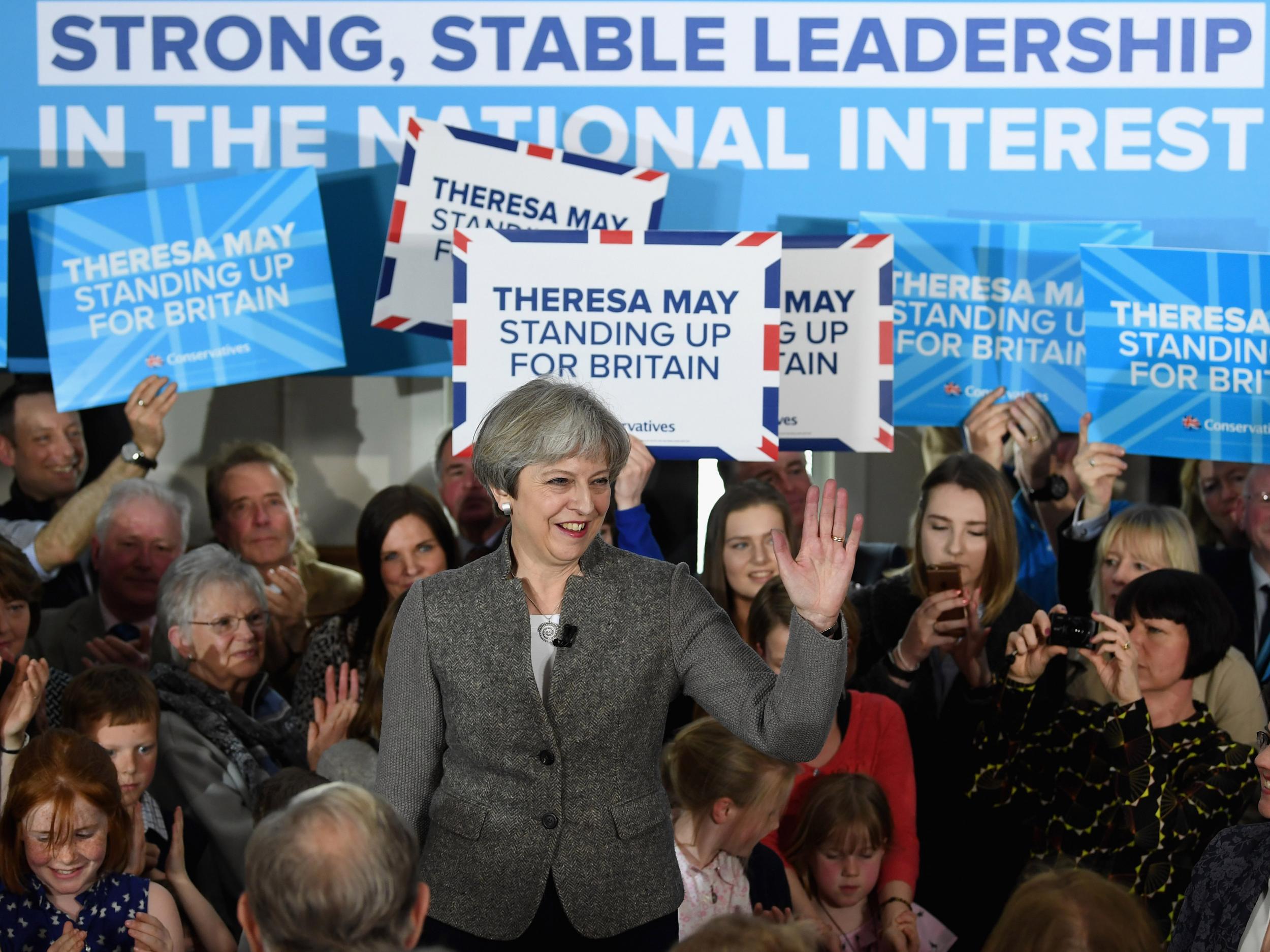
A slogan that deserved to fail but actually worked was “Forward, not back” which delivered a second landslide for New Labour in 2001. It was the worst of New Labour’s tendency to the hubristic and the vacuous, and was even plastered on the prime minister’s campaign jet. The Conservatives, under William “Save the pound” Hague, scored a net gain of one parliamentary seat. Slogans aren’t everything.
Join our commenting forum
Join thought-provoking conversations, follow other Independent readers and see their replies
Comments
Bookmark popover
Removed from bookmarks